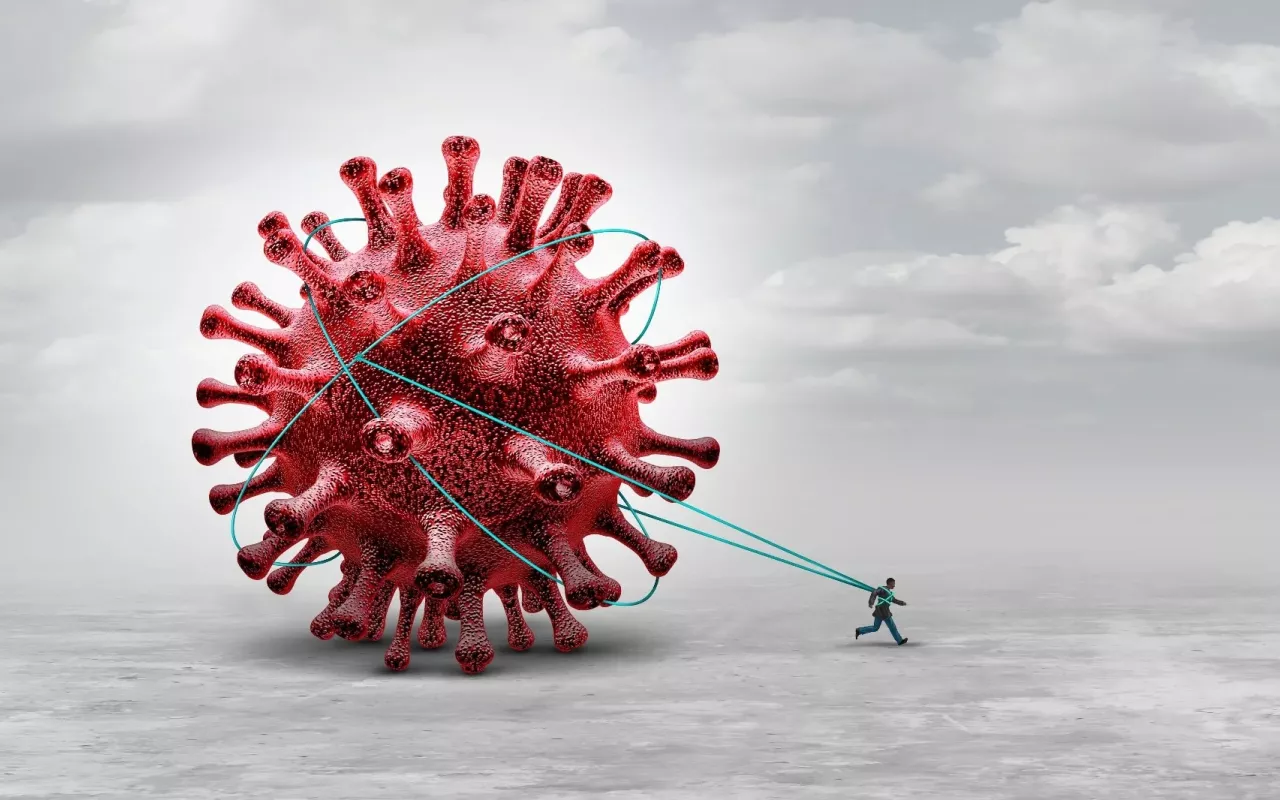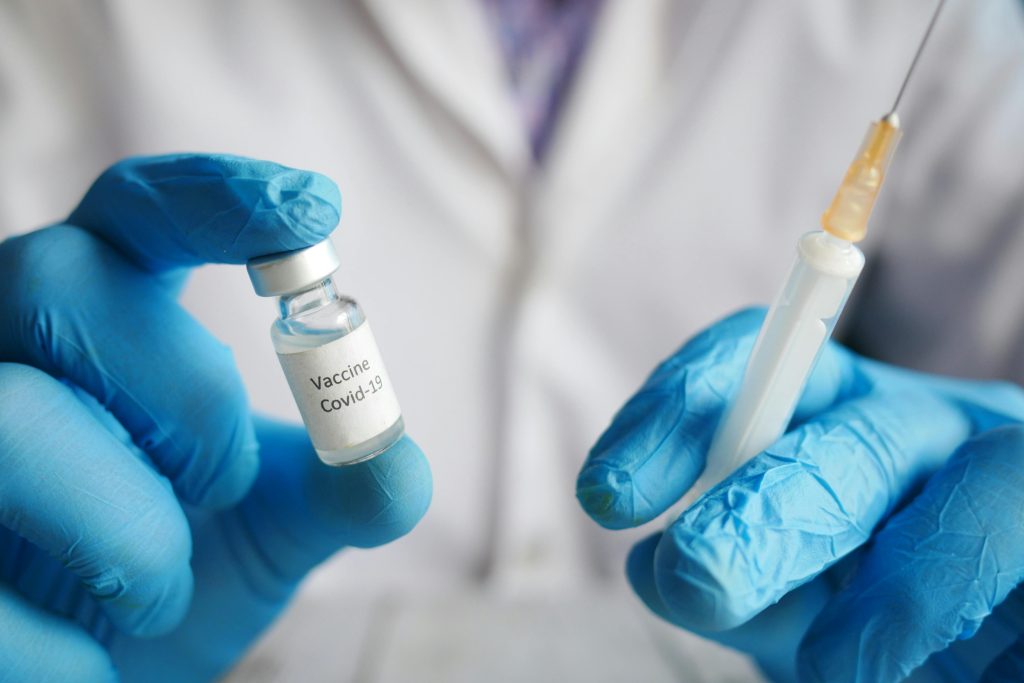NAD Optimization: The Key to Treating and Reversing Long Covid

Long Covid has become a major health challenge for many who have seemingly recovered from the initial infection but continue to struggle with lingering and often debilitating symptoms.
These symptoms can range from severe fatigue and brain fog to chronic pain and respiratory issues, significantly impacting quality of life. As the medical community seeks to understand the complexities of Long Covid, various potential treatments are being explored.
One promising area of research focuses on the role of NAD+ (nicotinamide adenine dinucleotide), a molecule essential for cellular energy production and repair.
Scientists believe that optimizing NAD+ levels could be a key factor in managing, and potentially reversing, the effects of Long Covid.
In this article, we talk about…
- What Long Covid really is, its symptoms, and the profound impact it has on those affected.
- The fascinating link between NAD+ and Long Covid, uncovering how this essential molecule might be connected to ongoing symptoms.
- How optimizing NAD+ levels could offer hope for Long Covid patients, potentially easing symptoms and even reversing the condition.
What is Long Covid?
Long Covid, also known as post-acute sequelae of SARS-CoV-2 infection (PASC), refers to a condition where individuals experience persistent symptoms after recovering from the initial phase of COVID-19.
These symptoms can include fatigue, shortness of breath, cognitive impairment, and joint pain, among others. The duration of Long Covid can vary from a few weeks to several months, significantly impacting your quality of life.
Long Covid is a complex and multifaceted condition that continues to puzzle medical professionals and researchers alike.
The long-lasting effects of the virus on the body can manifest in various ways, making it challenging to pinpoint a specific set of symptoms that define Long Covid.
However, understanding the symptoms and impact of this condition is crucial in providing appropriate care and support to those affected.
Symptoms and Impact of Long Covid

The symptoms of Long Covid can be diverse and affect multiple organ systems.
While fatigue is the most commonly reported symptom, individuals with Long Covid may also experience neurological symptoms such as brain fog and difficulties with memory and concentration.
These cognitive impairments can be frustrating and debilitating, affecting your ability to perform daily tasks and engage in work or social activities.
Respiratory symptoms like persistent cough and shortness of breath are also frequently reported among Long Covid patients.
These symptoms can persist long after the initial infection has resolved, making it difficult for you to regain your pre-COVID level of physical activity and overall well-being. The constant feeling of breathlessness can be distressing and can limit your ability to exercise or perform simple tasks.
In addition to cognitive and respiratory symptoms, individuals with Long Covid may experience musculoskeletal symptoms, such as joint and muscle pain.
These symptoms can be persistent and affect mobility, making it challenging for individuals to engage in physical activities they once enjoyed. Furthermore, Long Covid can also present cardiovascular symptoms like heart palpitations, adding another layer of complexity to the condition.
Long Covid can also profoundly impact individuals’ lives, preventing them from returning to work, participating in daily activities, and maintaining relationships.
The lingering symptoms can lead to a decreased quality of life and mental health issues, including depression and anxiety. The frustration and uncertainty surrounding Long Covid can also contribute to feelings of isolation and helplessness.
Prevalence and Demographics of Long Covid

The prevalence of Long Covid varies, with estimates ranging from 10% to 80% of people who have had Covid-19.
This wide range can be attributed to various factors, including the severity of the initial infection, age, underlying health conditions, and vaccination status.
While Long Covid is more commonly observed in individuals who had severe initial infections, it can also affect those with mild or even asymptomatic cases of Covid-19.
Long Covid does not discriminate and can affect individuals of all ages, genders, and ethnic backgrounds.
It is not limited to a specific demographic group, highlighting the need for comprehensive research and support for all those affected.
The long-term consequences of Long Covid on people’s physical and mental well-being emphasize the importance of early detection, proper management, and ongoing care.
Further research is necessary to identify risk factors and potential treatments for Long Covid. The medical community is actively investigating the underlying mechanisms of this condition, exploring potential therapies, and developing strategies to support individuals on their journey to recovery.
An Overview of NAD+
NAD+”…also helps enzymes that repair DNA and prevent damage to our cells.” Kathryn Piper, Registered Dietician/Nutritionist
NAD+ (nicotinamide adenine dinucleotide) is a coenzyme found in every cell of the body that plays a crucial role in various biological processes.
It is involved in energy production, DNA repair, cellular signaling, and regulation of gene expression. NAD+ levels naturally decline with age, and this decline has been associated with various age-related conditions.
The Biological Role of NAD+
NAD+ is a key player in cellular energy metabolism. It is involved in the conversion of nutrients into adenosine triphosphate (ATP), the primary fuel for cellular processes.
NAD plus also functions as a cofactor for enzymes involved in DNA repair, assisting in maintaining genomic integrity. Furthermore, NAD+ is involved in regulating cellular processes related to aging, inflammation, and stress response.
One fascinating aspect of NAD+ is its ability to modulate the activity of sirtuins, a class of proteins that have been linked to longevity and healthspan.
Sirtuins require NAD+ as a cofactor to carry out their enzymatic activities, and their function is thought to be influenced by NAD+ availability. These proteins play diverse roles in regulating cellular metabolism, aging, and stress response. By interacting with sirtuins, NAD+ can have a profound impact on cellular health and homeostasis.
Research has shown that NAD+ levels can be influenced by various factors, including diet, exercise, and certain molecules like nicotinamide riboside (NR) and NMN.
Strategies that boost intracellular NAD+ levels have gained attention for their potential role in promoting health and disease prevention.
NAD+ and Cellular Health
NAD+ is essential for maintaining cellular health and homeostasis. It plays a pivotal role in cellular processes such as DNA repair, mitochondrial function, and cellular defense mechanisms.
By supporting these critical processes, NAD+ can help optimize cellular function and protect against various stresses.
Furthermore, NAD+ has been implicated in the regulation of cellular aging.
As we age, NAD+ levels naturally decline, leading to a decline in cellular function and an increased susceptibility to age-related conditions. By replenishing NAD+ levels, it may be possible to slow down the aging process and promote healthier aging.
Emerging research has also suggested a potential link between NAD+ and Long Covid, a condition characterized by persistent symptoms following a Covid-19 infection.
It is hypothesized that NAD+ supplementation could help alleviate some of the symptoms associated with Long Covid by supporting cellular function and promoting recovery.
The Connection Between NAD+ and Long Covid

Emerging evidence suggests that NAD+ may play a crucial role in the management of Long Covid.
Several mechanisms have been proposed to explain this connection. Long Covid, also known as post-acute sequelae of SARS-CoV-2 infection (PASC), refers to the persistent symptoms experienced by some individuals even after recovering from the acute phase of COVID-19.
These symptoms can include fatigue, brain fog, shortness of breath, and muscle weakness, among others. Understanding the underlying mechanisms of Long Covid is essential for developing effective treatments.
The Impact of NAD+ on Immune Response
The immune system1 plays a vital role in combating viral infections, including SARS-CoV-2. NAD+ has been shown to influence immune cell function and response.
It can regulate the production of pro-inflammatory cytokines, which are involved in the immune response to viral infections.
By modulating immune cell activity, NAD+ may help optimize immune response and reduce the severity and duration of Long Covid symptoms.
Moreover, NAD+ is involved in the repair and maintenance of DNA, which is crucial for the proper functioning of immune cells.
Adequate levels of NAD+ can support the immune system’s ability to recognize and eliminate viral particles, preventing the persistence of the virus and the subsequent development of Long Covid symptoms.
NAD+ and Viral Infections
Research has indicated that NAD+ may have antiviral properties and can enhance the immune response against viral infections.
NAD+ can activate various cellular defense mechanisms, including the production of antiviral proteins and enhancing the activity of natural killer cells. These effects suggest that boosting NAD+ levels may support the body’s ability to fight viral infections, including the persistent nature of Long Covid.
In addition to its direct antiviral effects, NAD+ also plays a role in mitochondrial function. Mitochondria are the powerhouses of cells and are responsible for generating energy. Viral infections, including SARS-CoV-2, can disrupt mitochondrial function, leading to cellular dysfunction and the persistence of symptoms.
NAD+ supplementation has been shown to improve mitochondrial function and restore cellular energy production, potentially alleviating the symptoms of Long Covid.
Furthermore, NAD+ is involved in the regulation of inflammation, a key component of the immune response. Excessive inflammation can contribute to tissue damage and the development of chronic conditions.
By modulating the inflammatory response, NAD+ may help prevent the long-term consequences of COVID-19, reducing the risk of developing Long Covid.
Overall, the connection between NAD+ and Long Covid is an area of active research.
Potential Benefits of NAD+ for Long Covid Patients

The potential benefits of NAD+ supplementation for Long Covid patients are being explored in clinical and preclinical studies.
Improving Energy Levels and Reducing Fatigue
Fatigue is one of the most common and debilitating symptoms of Long Covid. NAD+ plays a vital role in cellular energy production, and its decline with age or illness can contribute to fatigue and reduced stamina. By replenishing NAD+ levels, it is possible that energy production can be enhanced, leading to improved energy levels and reduced fatigue in Long Covid patients.
Enhancing Cognitive Function
Cognitive impairment, often referred to as “brain fog2,” is another prominent symptom of Long Covid. NAD+ is involved in maintaining brain health, supporting neuronal function, and facilitating neurotransmitter synthesis. By optimizing NAD+ levels, cognitive function may be improved, potentially alleviating the cognitive impairments experienced by Long Covid patients.
Current Research and Future Perspectives
Current research is actively investigating the role of NAD+ in managing Long Covid, aiming to provide more insights into its potential benefits and limitations.
Ongoing Studies on NAD+ and Long Covid
Several clinical and preclinical studies are underway to evaluate the efficacy of NAD+ supplementation or NMN molecules in managing Long Covid. These studies aim to determine the optimal dosage, treatment duration, and potential side effects of NAD+ interventions in Long Covid patients. The results of these studies have the potential to guide future treatment strategies.
Potential Challenges and Limitations
While NAD+ shows promise in managing Long Covid, some challenges and limitations need to be addressed. The optimal dosage and treatment duration have yet to be determined, and the long-term effects of NAD+ supplementation are not fully understood. Additionally, further research is needed to identify potential interactions with other medications and treatments commonly used in Long Covid management.
Conclusion
In conclusion, understanding the role of NAD+ in managing Long Covid is a relevant and promising avenue of research. NAD+ plays a crucial role in cellular health, mitochondrial function, immune response, and energy production.
Its potential benefits in managing Long Covid, such as improving energy levels, reducing fatigue, and enhancing cognitive function, make it an intriguing area of exploration. Raise your NAD levels and improve energy and performance with Accuri® Vitality Boost.




